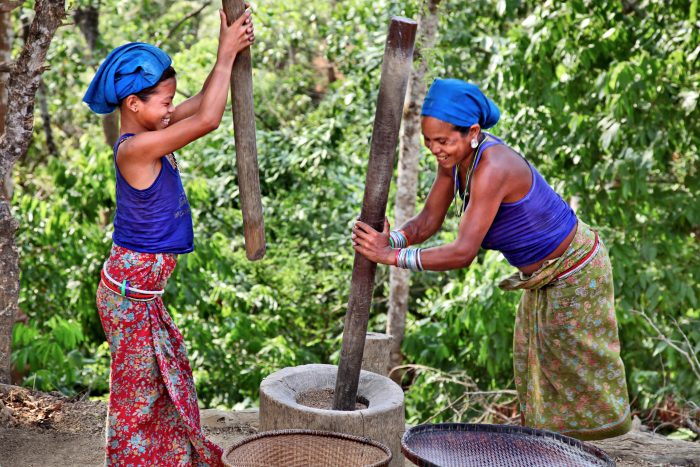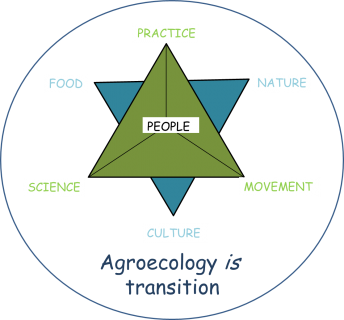Vision
ILEIA envisions diverse and just food and agricultural systems based in people’s food sovereignty, rooted in nature and culture.
Food sovereignty is at the core of our vision.
Food sovereignty is the right of peoples to healthy and culturally appropriate food produced through ecologically sound and sustainable methods, and their right to define their own food and agriculture systems.
We also envision food and agricultural systems that are:
- Diverse: Diversity is key. Diverse diets are crucial for nutrition, and biodiversity is key for the resilience of any agricultural system. We envision everyone having access to a diversity of foods for eating, and crops for planting. Diversity is the spice, and spark of life.
- Just: We envision a future in which people have control over their food system, and in which they have access to affordable food. Farming must be economically viable for small-scale family farmers.
- Rooted in Nature: We envision food systems that work with, instead of against nature – systems that conserve precious resources and cultivate vibrant, resilient agro-ecosystems.
- Rooted in Culture: We envision food systems that are respectful of and rooted in local culture. Each place has its own ways of growing, processing and eating food – these practices represent a great cultural treasure and endless gastronomic creativity.

Mission
ILEIA strengthens family farming rooted in agroecology by linking the, movement, science and practice of agroecology through systematising grounded experiences.
We aim to manifest our vision in all of the work that we do. Through grounded experiences, we connect the movement, science and practice of agroecology. For example, the use of a certain agroecological practice, or a way of organising, told by someone involved in the experience, often transmit important, broader lessons. For over 30 years, ILEIA has identified experiences in agroecology and family farming that are pivotal in catalysing change, and helped practitioners to analyse and communicate them in easily understandable language. By doing so, we have contributed to convening actors and shaping discourse around agroecology. While ILEIA carries out a wide variety of activities, grounded experiences are core to all of them.
Agroecology
ILEIA conceptualises agroecology as a constant transition. It is not an end goal, mere technology or a set of practices. Agroecology encompasses the practices that people use when they farm and eat in a way that respects nature and culture. But agroecology is also the systematic way that academics or systematic farmers investigate what practices work, when and how; in this way it is a science. Furthermore, when farmers organise with other farmers and with urban citizens to advocate for a more sustainable food system, and when they establish networks for learning and growing, agroecology becomes a movement. This movement and science feed the day-to-day practices, and the knowledge and confidence that people gain from the practices also feed back into the movement and science. As such, agroecology is technical and socio-political and has the potential to transform entire food systems.

